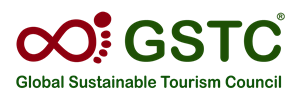Progressing a sustainability agenda is a huge hurdle for any business and particularly so in the hostelling category where over 80% of our hostels are independently owned and operated businesses. Our goal is to provide hostels with access to straightforward sustainability criteria and so enable them to make informed choices in managing their properties.
We’ve created a framework to inspire our hostel partners to further enhance their sustainability credentials, showcasing their positive impact. Our hostels have been doing extraordinary work for years to protect the environment, support local communities and champion local culture, while offering travellers authentic and meaningful experiences.
Developed for hostels, the Staircase to Sustainability framework helps partners review, compare, and showcase their sustainability efforts. The bespoke framework captures a hostel’s compliance, in a standardised and low-cost way. The framework is designed to help hostels identify any gaps in their current sustainability practices and guide them on how to enhance their sustainability practices and in doing so, to move up the ‘staircase’ to secure a formal certification. Built in line with the Global Sustainability Tourism Councils (“GSTC”) criteria, the framework is divided into four pillars:

- Sustainability Management - Providing the structure to track and report sustainability efforts
- Socio-Economic Impact - Supporting people, ensuring fair opportunities, and strengthening local communities
- Cultural Impact - Protecting and maintaining cultural heritage while ensuring respectful cultural interactions
- Environmental Impact - Reducing environmental impact through resource conservation and sustainable practices
Hostels measure their sustainability performance against each pillar. A hostel is assessed and can earn a badge dependent on their efforts. The framework is structured so that hostels learn from each other and the GSTC criteria on how to ‘move’ up the framework. As a result of the framework, hostels have a clear mechanism for communicating their sustainability practices, can learn from each other and our customers can browse for the most sustainable hostels on our site and make informed choices.


